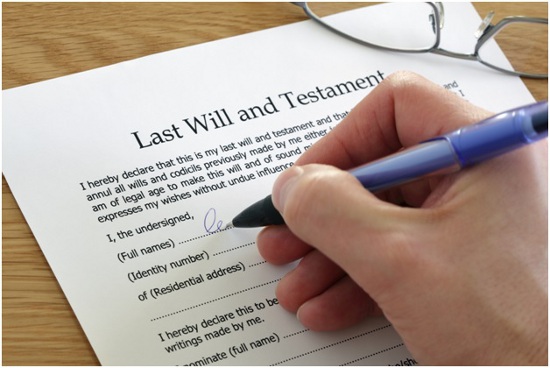Did you know that almost half of Americans over 55 don’t have a last will and testament? This is even knowing that they should have got this ready a few years back.
The legal acknowledgment of your passing is called a will. Although you may not wish to think about your passing, it’s an important task to take care of, just like any other legal document.
It’s a good idea to think about it now, while you are still healthy, in order to make things smoother for your family.
So when is the best time to write a will? Keep reading to learn more.


What Age Should You Write a Will?
You can technically write a will at any age, but there are a few things to consider. If you’re under the age of 18, you may not be legally allowed to sign a will in some states. In other states, the age limit is 21.
If you’re under 18 or 21 and you want to write a will, you should talk to an attorney to find out if your state has any age restrictions and find out what are the will requirements.
Your Marital Status
Your marital status can also affect when you should write a will. If you’re married, you generally don’t need a will because your spouse will automatically inherit your property if you die.
However, there are a few exceptions. If you want to leave your spouse less than what they would inherit under state law, you need a will. This is especially important if you’re in a second marriage and you want to make sure your children from your first marriage inherit your property.
You should also have a will if you’re in a same-sex relationship, even if your state recognizes same-sex marriage. This is because some states do not currently recognize same-sex marriage, so your partner may not automatically inherit your property if you die.
What to Include in Your Will
Your assets will also play a role in when you should write a will and should be included. If you don’t have many assets, you may not need a will because your loved ones will inherit your property through estate planning and succession.
However, if you have a lot of assets or you want to leave your property to someone other than a family member, you should have a will. This will ensure that your property is well distributed according to your wishes.
You should also have a will if you have minor children. This is because you can use your will to designate a guardian for your children. If you die without a will, the court will decide who will take care of your children, which may not be your first choice.
Your Health
Your health is another factor to consider when deciding when to write a will. If you’re in good health, you may not need a will right away. However, if you’re ill or you have a chronic health condition, you should write a will as soon as possible.
This is because you never know when your health will take a turn for the worst. If you die without a will, your family may have to go through the probate process, which can be lengthy and expensive.
If you have a will, your family will be able to avoid probate and your property will be fairly distributed according to your wishes.
Your Family Situation
Your family situation is another important factor to consider when deciding when to write a will. If you have young children, you should write a will as soon as possible. This is because you can use your will to designate a guardian for your children.
If you don’t have children, but you have a spouse or other close family members, you may not need a will right away. However, if you have a large family or you’re estranged from your family, you should write a will.
This is because if you die without a will, your family may fight over your property. A will can help to prevent this by clearly stating who you want to inherit your property.
Your Career
Your career can also affect when you should write a will. If you have a high-powered job or you’re self-employed, you should write a will as soon as possible. This is because your family will need to know your wishes in the event of your death.
If you’re retired or you don’t have many assets, you may not need a will right away. However, you should still consider writing a will so that your family knows your final wishes.
No matter your age, marital status, or assets, you should write a will if you want to ensure that your property is properly distributed according to your wishes.
If you don’t have a will, your family will have to go through the probate process, which can be lengthy and expensive.
A will can also help to prevent fighting among your family members. If you have children, a will can help to ensure that they are taken care of by the person you choose.
No matter your age or situation, you should talk to an attorney about writing a will. An attorney can help you to understand the laws in your state and make sure that your will is legal and binding.
Write a Will Now
It’s important to have a last will and testament, no matter your age. If something were to happen to you, a will allows you to control what happens to your possessions and your money.
Write a will and name a guardian for your children and make sure they’re taken care of. You can also direct how you want your funeral will be arranged and handled as well.
Find this post helpful? Please check the rest of our site for more insightful tips and content.

























